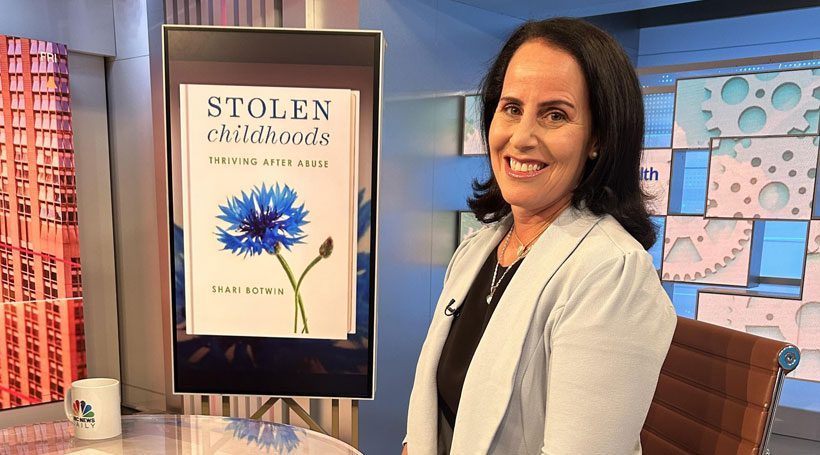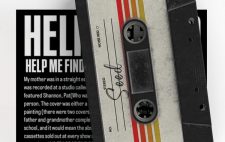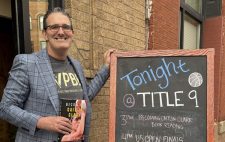On the surface, Shari Botwin’s childhood in Cherry Hill looked picture-perfect – swim club summers, overnight camp, community theater and a love for tennis. Her parents were social, her home outwardly warm. But behind closed doors, a very different story unfolded in this upper middle-class home, one marked by silence, trauma and abuse. Today, that same girl who was once trapped in a world no one saw, is a powerful voice for others. Botwin is now a licensed therapist, expert witness in abuse cases and author who helps survivors reclaim their lives. Here is her journey.
The abuse began when Botwin was just 4 or 5 years old. It was always at night, after she had fallen asleep. Her father would come into her room, quietly, without warning. Her memories of those early encounters are fragmented, clouded by time and trauma, but their emotional weight was unmistakable.
“I can remember being very little and just hating myself,” she says. “By fourth grade, I felt like I didn’t belong anywhere. On the playground, I’d watch the other kids hanging out at the bottom of the hill, flirting or kissing, and I couldn’t go near it. I thought something was wrong with me – but deep down, I also knew it was something else. I just didn’t know what.”
“For people like me, who don’t always retain conscious memories of abuse, it’s the triggers – like puberty – that start to unravel the truth.”
As she approached puberty, the confusion turned to dread. The relationship with her father began to feel strained and unnatural, though she still couldn’t fully articulate why. She was hypervigilant around him. “If he was nearby, I’d freeze, like a robot,” she says. “At the time, I didn’t understand it. Now, as a therapist, I know that was my body trying to protect me – my nervous system going into survival mode.”
By the time she was 12, the psychological toll became unbearable. After she got her period, a wave of depression and suicidal thoughts took over. She attempted suicide in the eighth grade. “Middle school was when everything started to spiral,” she recalls. “For people like me, who don’t always retain conscious memories of abuse, it’s the triggers – like puberty – that start to unravel the truth. That’s when I began to realize just how deeply I was hurting.”
Her parents put her into therapy. Ironically, and painfully, it was with a friend of her father’s. She didn’t feel safe confiding in him, for reasons that, even then, felt obvious. “Back in the 1980s, people weren’t talking about incest,” she says. “I think my mother had some awareness. She’d tell you she didn’t. She’d tell you she doesn’t think any of it happened.”
The nighttime visits continued, and the trauma took its toll in devastating ways. Botwin experienced multiple miscarriages as a young woman. Her first real sense of relief came when she left home to attend Hofstra University, where she initially majored in journalism. Eventually, she switched to psychology, a choice that would help her begin to make sense of her past and lay the foundation for her future.
After graduation, Botwin reluctantly moved back home. “It was not safe to live in my house,” she recalls. “I was in a really bad place – depressed and struggling with an eating disorder.” Desperate for distance and healing, she immersed herself in the world of theater. That year, she lived away from home while performing with the Bucks County Playhouse, touring in productions of “West Side Story” and “Pippin.”
Botwin enrolled in the graduate program at Rutgers University to earn her master’s degree in social work. But what began as a professional pursuit quickly became personal. The coursework, especially around trauma and family dynamics, struck a nerve, stirring emotions she had long buried. After graduation, she began working at an inpatient treatment facility for eating disorders in Philadelphia. But even as she helped others begin their healing journeys, her own pain remained unresolved.
“I was afraid of men,” she recalls. “I didn’t want to date – but I wanted to. I was so shut down, sitting alone in my apartment and feeling depressed. I knew something was wrong, and I finally realized I needed help.” That realization led her to begin therapy. It would take two years before the dam broke, but when it did, the memories came flooding in, raw and undeniable. It was the beginning of her true reckoning, and the start of her long road to healing.
Botwin eventually opened a private practice in Cherry Hill, specializing in trauma of all kinds. Her clients include survivors of war, parents who have lost children, victims of domestic violence, those who’ve lived through catastrophic accidents and individuals like herself, who endured childhood sexual abuse. She helps them navigate the emotional aftermath, treating PTSD, depression, eating disorders and the many complex layers of trauma that follow.
At 38, she made the empowering decision to become a single mother by choice. “I wanted to have a pregnancy because I wanted to experience motherhood,” she says. “I wasn’t going to let what happened to me take this part of my life away.”
Through it all, Botwin kept listening – to her clients, to her own healing process and eventually, to a quiet but persistent voice that told her it was time to share more publicly. “You don’t ever get over trauma,” she says. “You learn to live with it. I think it was around 2016, driving home from work, when I thought, I need to write a book about this. These are things people need to talk about.”
Despite early rejections, she pushed forward and ultimately published “Thriving After Trauma: Stories of Living and Healing.” The book shares stories of those who’ve faced unimaginable pain yet found ways to move forward and thrive. It wasn’t until years later that she would write something more personal. In 2024, “Stolen Childhoods: Thriving After Abuse” was released. “That book focuses specifically on clients who are childhood abuse survivors,” she says. “And I share parts of my own journey, too. Writing it was healing, cathartic. It gave voice to what so many of us had kept in silence for far too long.”
In addition to her private practice (now based in Pennsylvania) and writing, Botwin has become a trusted expert witness in court cases involving abuse.
“I sat in the jury box during a criminal trial and had the opportunity to educate the jury about what child abuse really is – what it does to children, why they often don’t speak up, and how the trauma can manifest over time,” she says. In the high-profile R. Kelly civil case, she met with each of the plaintiffs and provided critical insight to the judge about the profound psychological impact they endured. “I spoke about how what they went through led to PTSD, and how that trauma continues to shape their lives.”
For her own case, she made a different choice. She never went to court. She never sought a financial settlement. “My dad passed away in 2003, and I haven’t seen my mom since then,” she says. “For me, justice is being able to live my life the way I want. That’s enough.”
Today, Botwin stands as a survivor, a mother, a therapist, an advocate. She offers this message to others who may still be trapped in silence or shame: “Trauma isn’t who you are. It’s what you’ve experienced. It doesn’t define your identity. Don’t keep it a secret. If you can find purpose and meaning in what happened, you can live a beautiful, fulfilling life. You really can.”















